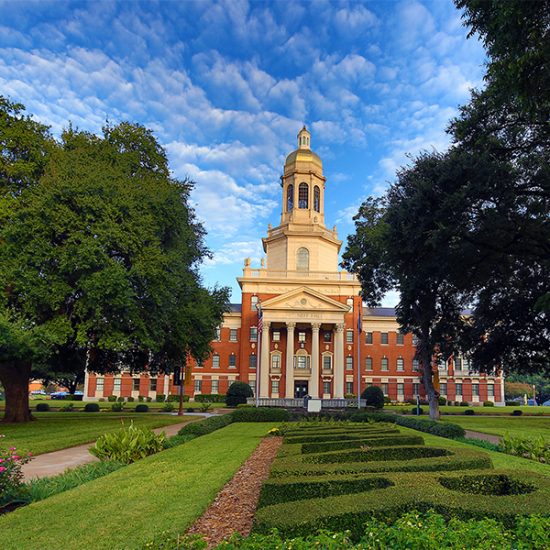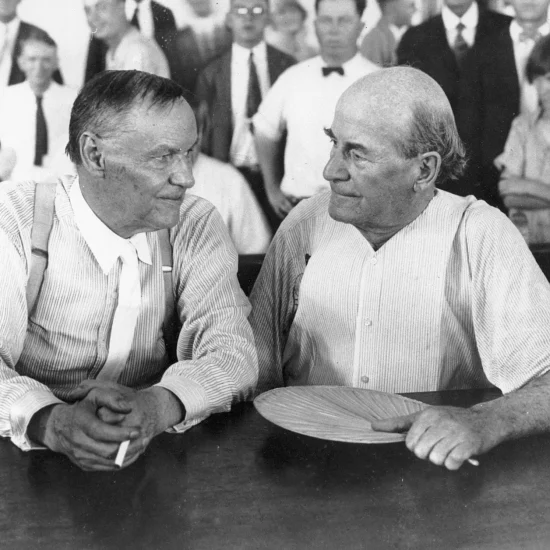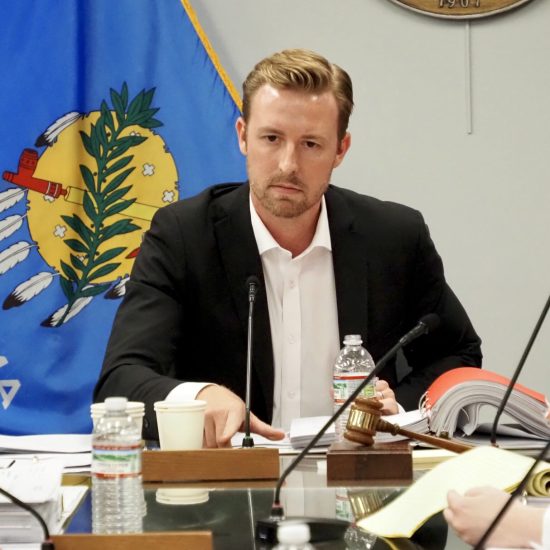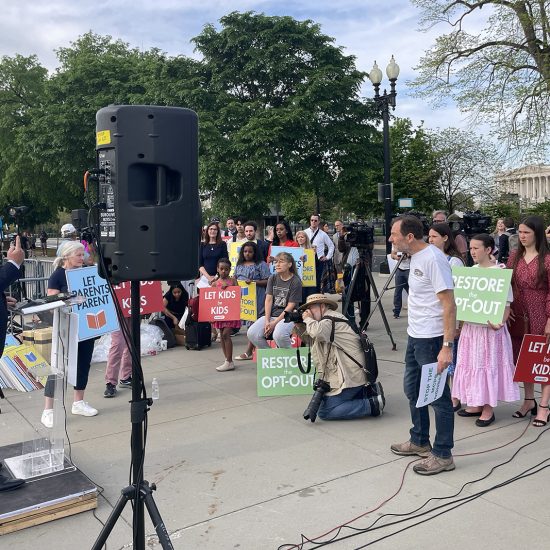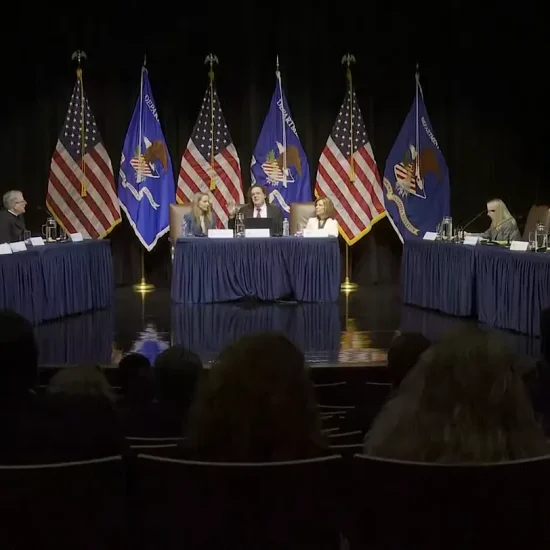
Just down the road from the university where I work last week, a pastor made inflammatory remarks from the pulpit about how he would not convict a man who raped a woman if she was wearing shorts. Of course, this set off a firestorm in our local community with people protesting and calling for a retraction and apology. While this was a lightning bolt of a comment — set to shock and awe — what lies deeper is even more disturbing. This same pastor also started and runs a private school through his church that will receive close to $1,000,000 in taxpayer funds this year alone.
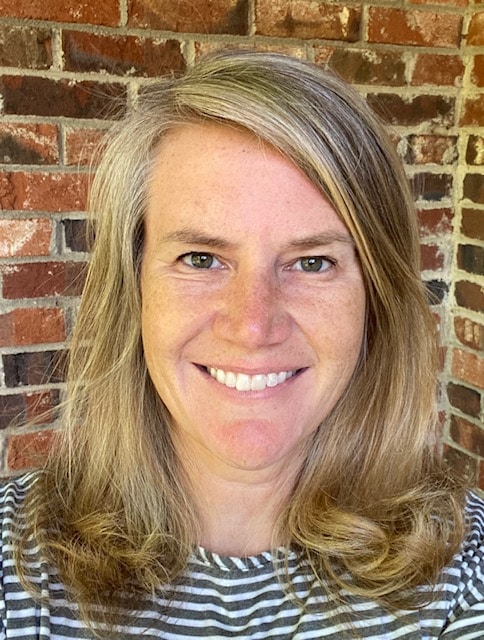
Sarah Blackwell
To me, this was the shocking and all too real culmination of a long-range plan to divert money from our public school system to fund private schools. For years, the amount of money in the North Carolina Opportunity Scholarship school voucher program crept upward as the supporters consolidated political power. The proverbial straw that broke the camel’s back, though, happened in early 2023 when Tricia Cotham, elected out of the Charlotte metro as a Democrat, immediately switched parties upon taking office offering a supermajority in the NC House. The Democratic governor could no longer veto the expansion of the voucher program to more than double its current funding.
Along with greater funding is also the removal of the family income limits allowing wealthier students to apply. The only things a school must do to be considered is register, have a criminal background check “for the employee with the highest decision-making authority,” administer one standardized test to all scholarship students annually, and submit a financial review if they get more than $300,000. Nothing is required regarding screening other employees, teacher educational requirements, curriculum standards, non-discrimination clauses, etc. Thus, there is no way to adjust for the type of misogyny displayed by the leader of this private school community receiving our public funds.
All of this really got me thinking about what our role is as Christians when it comes to public schools. Some Christians seem to think it is to un-fund them to the point that they are failing so that money will instead be diverted to Christian schools. This just does not sit well with me both as a Christian (where some students would invariably be left behind) and as a U.S. citizen (where I believe there should be quality non-sectarian education options). It might seem like vouchers would be a good way to help relieve the pressure on failing public schools, but this has not necessarily been the case. In fact, according to Forbes magazine, the voucher program in Arizona has nearly half of its money being used by students from the wealthiest zip codes with only 3.5% of the students coming from zip codes where the public school has a “D” or “F” grade. The students that might need it most are not utilizing it due to a variety of factors such as the proximity of schools to their home (transportation) and lack of auxiliary services (including meals).
Christians were once the backbone of the public school movement. In 1647, the Puritans helped pass the famous “Old Deluder Satan Act” in the Massachusetts legislature. It ordered “every township in this jurisdiction, after the Lord hath increased them to fifty households shall forthwith appoint one within their town to teach all such children as shall resort to him to write and read, whose wages shall be paid either by the parents or masters of such children, or by the inhabitants in general.” The basic idea was to teach children to read so that they could learn scripture and keep Satan away. For generations, the church was heavily involved in everything from promoting teaching standards to textbook creation. Education supporters such as Horace Mann believed that public education, while decidedly non-sectarian, should provide the kind of equalization of treatment found in the Christian scriptures. He saw the impetus for their existence as an extension of Christian morals.
As the country diversified in the 20th century, the court cases surrounding the Establishment Clause of the First Amendment were a needed constitutional protection of religious liberty. These cases, however, seemed to knock the wind out of conservative Christian support for public education. Unfortunately, the final straw for many southern Christians was school desegregation which caused a proliferation of private schools, oftentimes established as Christian in nature (opponents later nicknamed them “segregation academies”). Many of these schools still exist across the South with little change in the demographic makeup. I unknowingly interviewed at one 25 years ago when seeking my first teaching job. I was naïve, and thus I was astounded when I did not see a student of color the entire interview day in a city that was close to 70% black. I could not reconcile in my brain the Christian principles the school claimed and the clear exclusion of a whole demographic of God’s children.

Photo by Element5 Digital on Unsplash
I am not against private schools. In fact, I taught in private schools for well over a decade. I have friends and family with children in a variety of types of schools that they have chosen as best for their situations. If families decide other educational options (including home school) better meet the needs of their children, so be it. What I am simply asking for is for Christians not to disparage what was left behind. Some seem not only set on leaving but also on destroying the reputation of the place they are exiting. It is so disheartening to see people bashing whole schools or districts online. In doing so, we dehumanize the efforts of faithful people who are doing the best they can with the limited resources provided. Remember that for some families there is no other choice. They need the proximity and services that public schools provide. Additionally, some families are choosing to be there to shine light in dark places and teach their children how to be good neighbors to a diverse population.
So, what can Christians do to support the public schools in their area — whether they are utilizing them or not?
- Vote for school bonds. I cannot imagine a school district where there is not necessary infrastructure that needs to be maintained. While you are at it, vote for pro-public school candidates. Pay attention and vote in school board elections.
- Serve as a tutor or coach. Many schools are looking for people to come and read with students or tutor basic math skills. Working with a sports program is another great way to get involved.
- Involve your church in an after-school program for your local public school. For years our congregation has helped support a program after school that feeds students, helps them with their homework, and since it is on our property (and with parental permission) we can include lessons about the Bible. After-school care is a major need for many working parents.
- Celebrate the teachers and staff members at local schools. Let them see that their service is valued by the community. There are large numbers of Christian educators doing their best to answer God’s call on their lives there, and negative remarks hurt their mission.
- Offer college scholarships to local public school students. There are also large numbers of Christian students who are living out their faith among nonbelievers — developing relationships to meet the needs of their communities and learning how to love their neighbors who are sometimes quite different from themselves.
- Remember that public schools are providing valuable services to keep children fed and often clothed. Schools have increasingly become a social safety net. They are also the center of many communities.
- Keep your mouth shut when you want to disparage a school or the entire system. Don’t spread rumors. So much of community buy-in to the schools is about perception. Be an advocate.
In the past, Christians have played a vital role in the understanding that open access to education is a fundamental principle in our country. In many places, schools help to form the core of the local community. It should be a place we as Christians are showing up. Are public schools bureaucratic, bulky, and broken? Yep. But so is the church, and I am not giving up on that either.
We helped build it, now let’s try not to destroy it.
Sarah Blackwell is a contributing writer at Word & Way and a 2020 graduate of the Gardner-Webb School of Divinity. She teaches in the Religion and Philosophy Department at Wingate University and is a D.Min. student at McAfee School of Theology. She still remembers her public elementary school song, “Oh Moreau Heights.” Her intergenerational faith formation book, God is Here is available through Amazon and other online book retailers. Follow her writings at www.proximitytolove.org.

